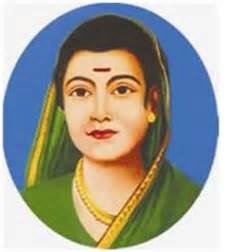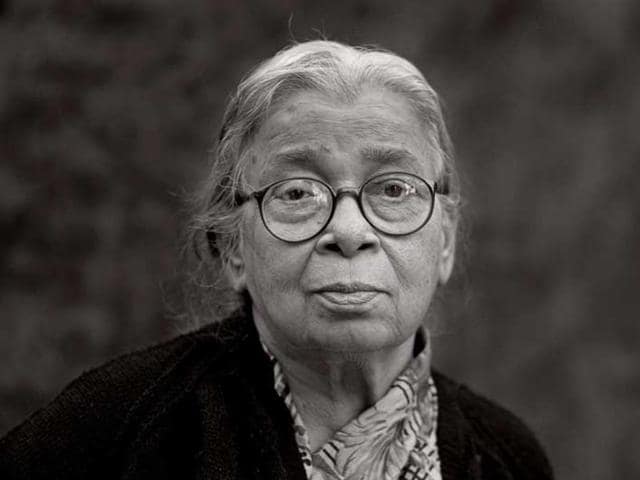BLOG
These Cotton Tote Bags Are Inspired By Early Indian Feminists
If you've been browsing our store or following us on Instagram, you've probably seen these Tote-ally Awesome Tote Bags we've made in collaboration with the women at Swara. (And if you haven't, you're missing out! Follow us here.)
Each of these tote bags is named after a trailblazing Indian woman who inspired us. Why? Because we think their names and stories should be known by everyone! Read on to learn more about these inspiring women and the struggles behind their victories that have made our own wins and freedoms possible.
1. The Savitri Tote: Savitribai Phule
If you’re an Indian woman reading this blog, you owe an important debt to Savitribai Phule, a pioneer in women’s education and an anti-caste activist. She was the first woman teacher at the first school for girls established in 1848 by her and her husband, Jyotirao Phule. Their relentless efforts started the movement that has now enabled women like you and me to access our crucial right to education.
Her journey was not easy. Savitribai was married when she was just 10 years old. Her husband and his friends taught her to read and write. She undertook her teacher’s training in Pune and Ahmednagar and in 1847, passed the last of the exams she needed to become a qualified teacher.
Savitribai faced severe retaliation and harassment from dominant communities. When she walked to school, men would lie in wait to throw stones, mud, and dung at her Undeterred, she would simply carry an extra saree with her and change when she reached the school.
2. The Ismat Tote: Ismat Chughtai
Our Ismat tote bag is named after Ismat Chughtai - an Urdu writer who was one of the first to focus on female sexuality, femininity and women’s rights. Ismat deeply understood the conflicts, fears and the secret desires of women, and she used her mighty pen to unveil these issues to the world. Many a time she was accused of writing “obscene things,” and talking about issues that were best left “behind a curtain.” She was even sued for obscenity for her short story Lihaaf.
However, her critics couldn’t stop her and after taking the literary world by storm, she ventured into mainstream cinema too. Interestingly, she wrote the dialogue in Junoon (1978) and played the role of the protagonist's mother. Ismat was a woman whose personality shone through everything she said, did and wrote. She did so unapologetically and everyone knew it!
3. The Anna Tote: Justice Anna Chandy
Women in positions of power can open doors for other women. Just look at the story of Justice Anna Chandy, India’s first woman judge and later the first woman among all Commonwealth nations to become a High Court judge.
She was born in 1905 into a Syrian Christian family in Trivandrum (Thiruvananthapuram), Kerala. She was a trailblazer in her own right, but she got by with a little help from the matrilinear traditions of many communities in the state - including its rulers.
The then sovereign, Maharani Sethu Lakshmi Bayi opened admissions for women in the Government Law College despite strong opposition. Anna grabbed the opportunity and didn’t let go, becoming the first woman in all of Kerala to enrol for a postgraduate law degree. Despite the jeering and jests of her male colleagues, she earned her degree with distinction and became famous as a criminal lawyer.
Along with being a successful lawyer, she started a women’s magazine in Malayalam titled “Shrimati” which discussed women’s freedom, widow remarriage, and the gender wage gap faced by women farm workers. She also fiercely pushed for women’s access to government jobs and made it happen. When we look at our Anna tote bag, we’re reminded of how much women have done to lift each other up.
4. The Sarla Tote: Sarla Thakral

Our Sarla tote bag reminds us to keep reaching for the skies, just like its namesake, Sarla Thakral. In 1936 at the age of 21, she became the first Indian woman to fly an aircraft.
Sarla was born in Delhi in 1914 and was married to P.D Sharma when she turned 16. Her husband’s family happened to be a family of pilots (there were nine of them) and he encouraged her to take up flying. She was enrolled into flying lessons and after just 8 hours and 10 minutes of training, her instructor thought she was ready to fly solo.
She stepped into the cockpit of a Gypsy Moth plane clad in a saree and passed her flying test with flying colours! After this, she underwent intensive training and earned her “A” license. In 1939, her husband died in a plane crash but she persevered, hoping to earn her commercial pilot license. But the Second World War broke out and all flying was suspended.
Although Sarla could no longer pursue her dream to fly, she gained a diploma in Fine Arts and became a successful businesswoman selling costume jewelery. And she paved the way for other women to enter aviation.
5. The Mahasweta Tote: Mahasweta Devi
Mahasweta Devi was a prolific award-winning Bengali writer and activist. She was known for her fiction and political writing, including novels, short stories, children’s stories, plays and activist prose. She frequently wrote about the Naxal movement, the rights of tribals, and the plight of women.
Her notable works include the award-winning Hajar Churashir Maa (a novel in the backdrop of the Naxal movement), Aranyer Adhikar (for which she won the Sahitya Akademi Award), and Rudali (which inspired the award-winning 1993 movie by the same name). She’s also known for a collection of short stories entitled Breast Stories.
She worked with landless labourers in Eastern India, documenting and bringing attention to grassroots issues. She spoke of the rights of Dalits, adivasis, and women. She also became the editor of Bortika, a Bengali quarterly that served as a forum for the marginalized to speak for themselves.
6. The Anasuya Tote: Anasuya Sarabhai
Our Anasuya cotton tote bag is close to our hearts because it’s named after Anasuya Sarabhai, an inspiring woman with whom we share a common vision of fair and ethical business practices. Anasuya Sarabhai was the first woman trade union leader in India and the founder of the Ahmedabad Textile Labour Association.
One doesn’t expect a trade union leader to come from a rich business family like the Sarabhais, but that’s Anasuya’s story. She was born into relative privilege but was denied access to an education and unwillingly married off as a child. She was able to get a divorce and with the help of her brother, pursued an education in London. There, she was introduced to ideas of socialism and gender equality, which changed her when she came back to India.
When she returned to India, she began working with marginalized communities by opening institutions like schools for girls from all castes, hostels for avarna girls, maternity homes, and creches for the children of workers. But her trade union work began after she interacted with workers who were exhausted after working for 36 hours straight and was shocked into action by their plight.
In 1914, she helped organize mill-workers and led a two-day strike against the mill-owners. At the time, her brother headed the Mill Owners Association and was furious at her, but Anasuya remained undeterred. The strike lasted 21 days and ended with the successful beginning of negotiations. She continued her work with labour unions to become a pioneer of the women’s and labour movement in India.
---------------------
We owe a great debt to these pioneering Indian feminists and think everyone should know them as the legends they are! But unfortunately, most of them remain relatively unknown or relegated to footnotes in history.
By naming our cotton tote bags after these trailblazing women, we hope to bring their names into the mainstream and get people thinking about who they are and acknowledging their contribution.
With the women tailors at Swaravow, we’ve created our collection of 6 Tote-ally Irresistible Tote Bags, each of which tells the story of an early Indian feminist. Our tote bags are created in line with the principles each of the inspirational women on our list fought for: equitable wages and decent working conditions, empowering women’s livelihoods, and sustainability. You can view our collection here.













